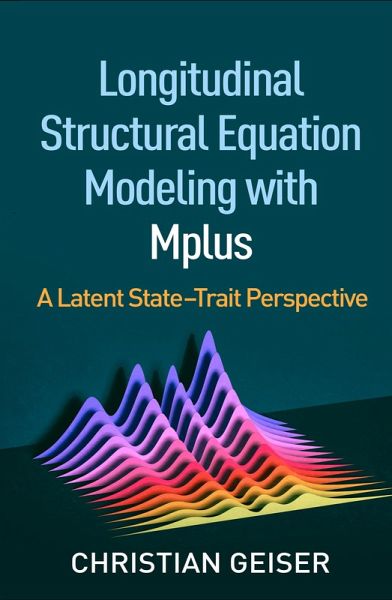
Longitudinal Structural Equation Modeling with Mplus (eBook, ePUB)
A Latent State-Trait Perspective
Versandkostenfrei!
Sofort per Download lieferbar
52,95 €
inkl. MwSt.
Weitere Ausgaben:

PAYBACK Punkte
26 °P sammeln!
An in-depth guide to executing longitudinal confirmatory factor analysis (CFA) and structural equation modeling (SEM) in Mplus, this book uses latent state-trait (LST) theory as a unifying conceptual framework, including the relevant coefficients of consistency, occasion specificity, and reliability. Following a standard format, chapters review the theoretical underpinnings, strengths, and limitations of the various models; present data examples; and demonstrate each model's application and interpretation in Mplus, with numerous screen shots and output excerpts. Coverage encompasses both tradi...
An in-depth guide to executing longitudinal confirmatory factor analysis (CFA) and structural equation modeling (SEM) in Mplus, this book uses latent state-trait (LST) theory as a unifying conceptual framework, including the relevant coefficients of consistency, occasion specificity, and reliability. Following a standard format, chapters review the theoretical underpinnings, strengths, and limitations of the various models; present data examples; and demonstrate each model's application and interpretation in Mplus, with numerous screen shots and output excerpts. Coverage encompasses both traditional models (autoregressive, change score, and growth curve models) and LST models for analyzing single- and multiple-indicator data. The book discusses measurement equivalence testing, intensive longitudinal data modeling, and missing data handling, and provides strategies for model selection and reporting of results. User-friendly features include special-topic boxes, chapter summaries, and suggestions for further reading. The companion website features data sets, annotated syntax files, and output for all of the examples.
Dieser Download kann aus rechtlichen Gründen nur mit Rechnungsadresse in A, D ausgeliefert werden.













